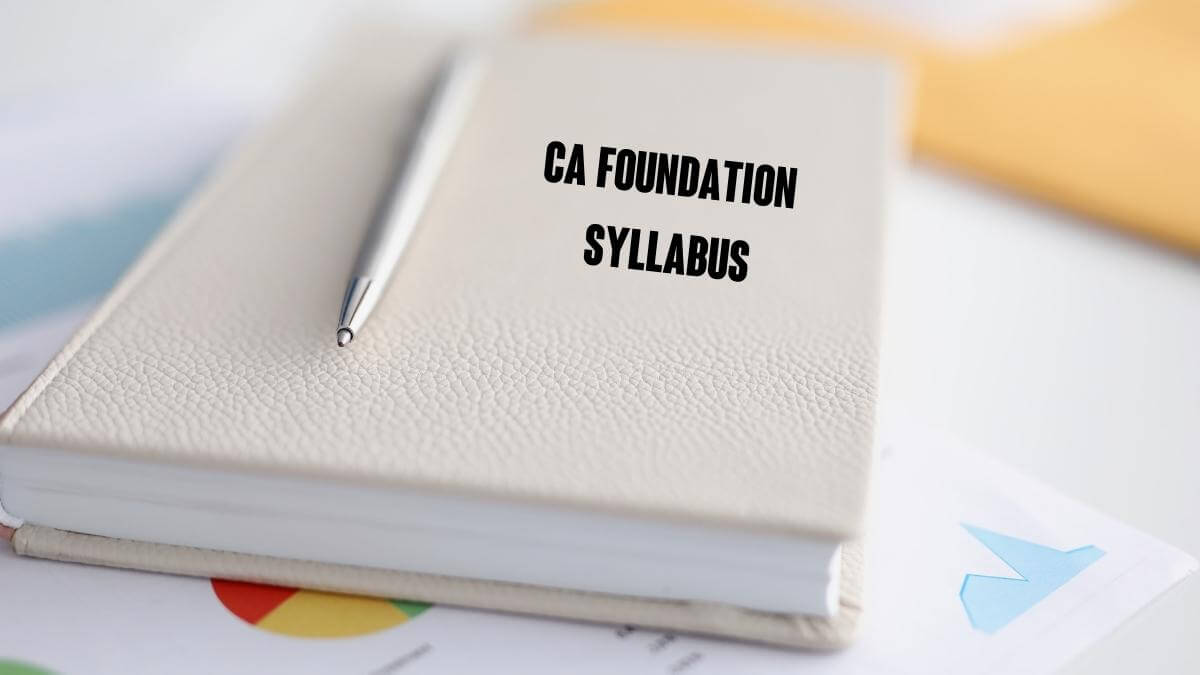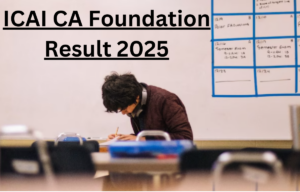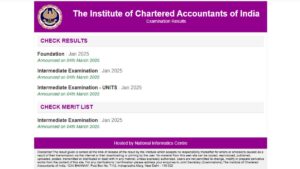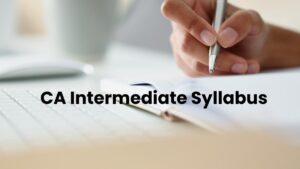Table of Contents
The CA Foundation Syllabus 2025 has been released by the Institute of Chartered Accountants of India (ICAI) at its official website. All the students who are preparing to appear in the CA Foundation May Exam need to note that the CA Foundation May Exam Date 2025 has been released at the official website announcing the start of exams from May 15, 2025.
All the CA aspirants who dream a successful career by becoming a successful Chartered Accountant need now to boost their preparation speed by understanding each and every topic that is covered in the ICAI CA Foundation Syllabus 2025. They can scroll down in this article to find the topic wise CA Foundation Syllabus 2025.
CA Foundation Syllabus 2025
The CA Foundation Exam Syllabus comprises 4 papers namely Accounting, Business Laws, Quantitative Aptitude, and Business Economics. These papers test various skills and have different question formats. Papers 1 and 2 consist of objective-type questions, which are multiple-choice. On the other hand, Papers 3 and 4 feature subjective-type questions, where students write detailed answers. The exam aims to assess students’ knowledge and understanding through these varied formats. The table below clearly lists each paper along with the type of questions it includes, making it easy to understand the structure of the exam.
| CA Foundation Syllabus 2025 | ||
| Paper Number | Paper Name | Type of Questions |
| Paper 1 | Accounting | Objective |
| Paper 2 | Business Laws | Objective |
| Paper 3 | Quantitative Aptitude:
|
Subjective |
| Paper 4 | Business Economics | Subjective |
CA Foundation Syllabus 2025 [Detailed]
The CA Foundation Syllabus 2025 is divided into four sections, covering key subjects. Students will learn about accounting principles and practices, business laws, mathematics, logical reasoning, statistics, and business economics. Each subject is designed to help students build a strong foundation in these areas. Understanding and mastering these topics are essential to pass the CA Foundation Exam in 2025. This syllabus provides a detailed guide for students to prepare effectively and gain the skills needed for their CA journey. Check the complete article below:
CA Foundation Syllabus for Paper 1 Accounting
Paper 1 of the CA Foundation Exam 2025 focuses on important accounting topics. It covers basic accounting concepts, steps in the accounting process, bank reconciliation statements, and understanding depreciation. The syllabus helps students learn key principles and practices in accounting. This part of the exam is designed to test students’ knowledge of core accounting ideas in a simple and clear way, making it easier to follow and understand the essential concepts needed for accounting.
| CA Foundation Syllabus for Paper 1 (Principles and Practice of Accounting) |
Chapter 1: Theoretical Framework
Chapter 2: Accounting Process
Chapter 3: Bank Reconciliation Statement
Chapter 7: Preparation of Final Accounts of Sole Proprietors
Chapter 8: Partnership Accounts
Chapter 9: Financial Statements of Not-for-Profit Organizations
|
CA Foundation Syllabus for Paper 2 Business Laws
The students in their 2nd paper of CA Foundation Exam 2025 will be tested for topics like The Indian Contract Act, 1872, The Sale of Goods Act, 1930, The Indian Partnership Act, 1932, etc. The table below shares the complete CA Foundation Syllabus 2025 for Paper 2.
| CA Foundation Syllabus for Paper 2 (Business Laws and Business Correspondence and Reporting) |
Chapter 1: The Indian Contract Act, 1872
Chapter 2: The Sale of Goods Act, 1930
Chapter 3: The Indian Partnership Act, 1932
Chapter 4: The Limited Liability Partnership Act, 2008 |
CA Foundation Syllabus for Paper 3 Business Mathematics, Logical Reasoning and Statistics
The CA Foundation Syllabus 2025 Paper 3 is divided into 3 parts Business Mathematics, Logical Reasoning and Statistics. The table below defines the detailed syllabus among all these parts which helps students understand what they need to study and prepare.
| CA Foundation Syllabus for Paper 3 (Business Mathematics, Logical Reasoning and Statistics) |
Part-A: Business Mathematics
Part-B: Logical Reasoning
Part-C: Statistics
|
CA Foundation Syllabus for Paper 4 Business Economics
The CA Foundation Syllabus 2025 Paper 4 is characterized into 2 parts among which the students will be tested for their knowledge of Business Economics and Business and Commercial Knowledge. Check the table below for detailed syllabus:
| CA Foundation Syllabus for Paper 4 (Business Economics and Business and Commercial Knowledge) | |
| Parts | Syllabus |
| Part 1 (Business Economics) | Chapter 1: Nature & Scope of Business Economics
Chapter 2: Theory of Demand and Supply
Chapter 3: Theory of Production and Cost
Chapter 4: Price Determination in Different Markets
Chapter 5: Business Cycles |
| Part 2 (Business and Commercial Knowledge) | Chapter 1: Business and Commercial Knowledge – An Introduction Chapter 2: Business Environment Chapter 3: Business Organizations Chapter 4: Government Policies for Business Growth Chapter 5: Organizations Facilitating Business Chapter 6: Common Business Terminologies |


 ICAI CA Foundation Result 2025 Out @icai...
ICAI CA Foundation Result 2025 Out @icai...
 ICAI CA Inter Result 2025 Out; Download ...
ICAI CA Inter Result 2025 Out; Download ...
 CA Intermediate Syllabus 2025, Check Gro...
CA Intermediate Syllabus 2025, Check Gro...









